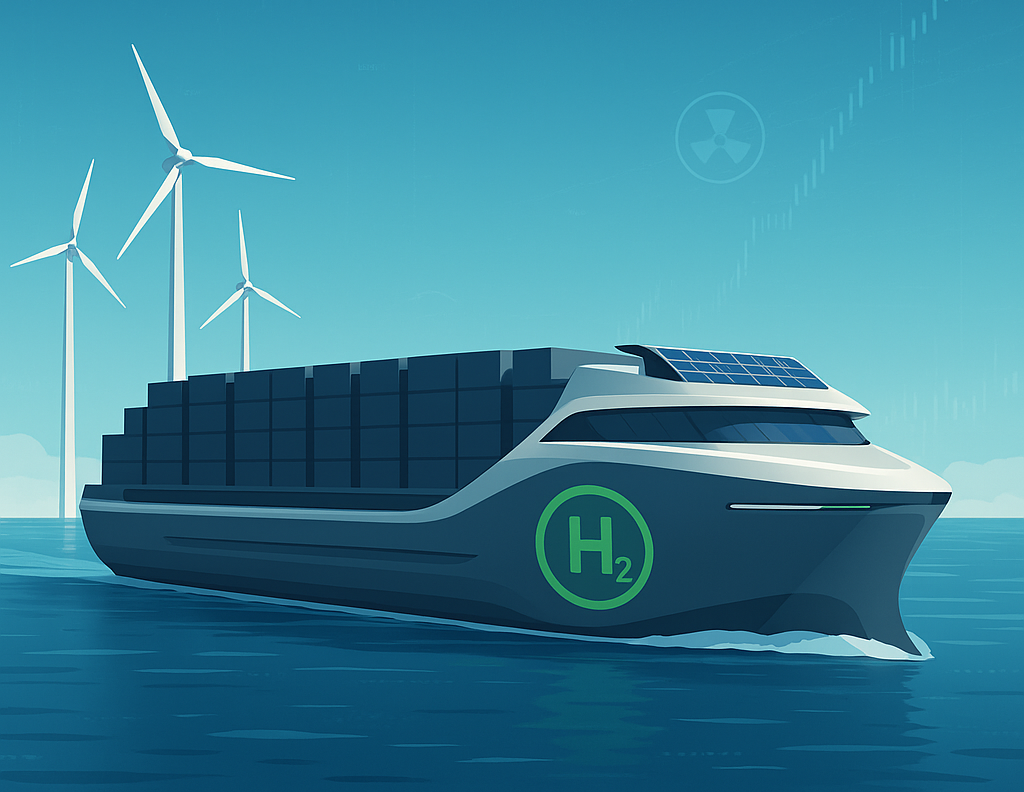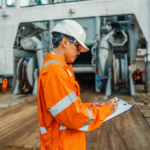A SpecTec article based on UK Government’s “Course Charted for Carbon-Free Shipping by 2050” initiative
Sources: gov.uk, government-world.com
The UK government recently shared its plan to make shipping carbon-free by 2050. This is an exciting and important goal for our industry – one that brings clarity to the challenges ahead and provides a powerful incentive for innovation.
At SpecTec, we fully support this ambition. Having a bold, shared objective is exactly what the maritime world needs. It unites stakeholders across the sector, attracts investment, and encourages the kind of cross-industry collaboration that drives lasting change.
But while the destination is clear, the route is still under construction. Now, the question becomes: how do we get there?
The Fuel Debate: Navigating Uncharted Waters
One of the biggest unknowns in the race to decarbonise is deciding which fuel, or combination of fuels, will power the ships of tomorrow. Right now, a wide array of alternatives is being explored: green ammonia, methanol, hydrogen, battery-electric systems, and even nuclear energy.
Each option brings its own advantages and challenges. Some are more energy-dense, others easier to store or transport. Some are closer to commercial readiness, while others require entirely new infrastructure.
Picking the “right” fuel isn’t just a technical decision – it’s a strategic one. According to the UK government, investment in new fuels and clean technology is central to achieving net zero by 2050. Their updated Clean Maritime Plan includes expanded funding for green innovation and policies to encourage industry adoption.
As Lord Davies, Maritime Minister, stated:
“The UK is unrelenting in its commitment to decarbonising the maritime sector… This strategy will help us meet our international climate targets while building a strong, resilient, and sustainable maritime sector.”
To meet those targets, the industry must move quickly – but wisely.
A Closer Look at Nuclear
Among the emerging technologies, nuclear energy is one of the more controversial – but also one of the more promising. Recent advancements have made nuclear power safer, smaller, and more reliable. Microreactors and next-gen systems offer the potential for long-range, emission-free propulsion, especially in larger vessels or remote operations where other fuel options fall short.
However, public perception and regulatory frameworks still present major hurdles. There’s a need for open dialogue and education to help industry stakeholders and the general public better understand how nuclear technology has evolved – and how it could play a practical, safe role in maritime.
Why Digital Tools Are Key to Any Path Forward
While the fuel debate continues, one thing is certain: data and digital tools are essential to every path to net zero.
At SpecTec, we believe software plays a critical role in making ships smarter, more efficient, and more compliant with increasingly strict environmental regulations from bodies like the International Maritime Organization (IMO).
Our AMOS software suite, covering Maintenance, Inventory, and Procurement, helps vessel operators to:
- Optimise fuel usage through better maintenance scheduling and asset management.
- Cut waste by aligning inventory with real-time demand, avoiding overstocking or shortages.
- Streamline procurement to ensure environmentally responsible purchasing practices.
Better maintenance reduces emissions. Smarter inventory management minimises environmental impact. And more efficient procurement aligns your operations with sustainability goals. Isn’t that win win for everyone!!
These aren’t small changes either – they add up. And in a future where every emission counts, operational efficiency could be the difference between regulatory compliance and costly penalties, which need to be avoided.
A Shared Industry Challenge… And Opportunity
The UK government’s updated Clean Maritime Plan calls on the industry to think holistically, work collaboratively, and act decisively. As Baroness Vere noted:
“The UK shipping sector is at a turning point – with emerging green technologies, we have the opportunity to drive forward a revolution in greener freight and jobs.”
This is more than a policy announcement, it’s a challenge to the maritime industry to lead the charge.
The responsibility doesn’t sit with one group. It spans shipbuilders, fleet managers, port authorities, software providers, policymakers, and financiers. Everyone has a role to play in shaping a sustainable future.
Looking Ahead: 2050 Is Closer Than It Seems
The year 2050 may sound distant, but in shipping terms, it’s just around the corner. A vessel being designed today could still be in service 25 years from now. That means the decisions we make now – on design, fuel, technology, and operations – will directly shape whether we hit the zero-emissions mark or fall short.
Yes, the challenge is complex. But that’s exactly what makes it exciting.
At SpecTec, we’re committed to supporting this transformation. Not just by keeping pace with regulation, but by helping our customers stay ahead of it – using technology to drive smarter, greener operations every day.
We believe ambitious goals are good for the industry. They foster innovation, encourage partnership, and bring clarity to an uncertain future. Let’s use this moment to make bold decisions, choose wisely, and act with purpose.
Because a cleaner, carbon-free maritime industry isn’t just possible – it’s necessary.
Let’s work together, innovate continuously, and set sail toward a sustainable future.
📞 Book an AMOS demo today to explore how SpecTec can help your business reduce its carbon footprint and improve operations.




